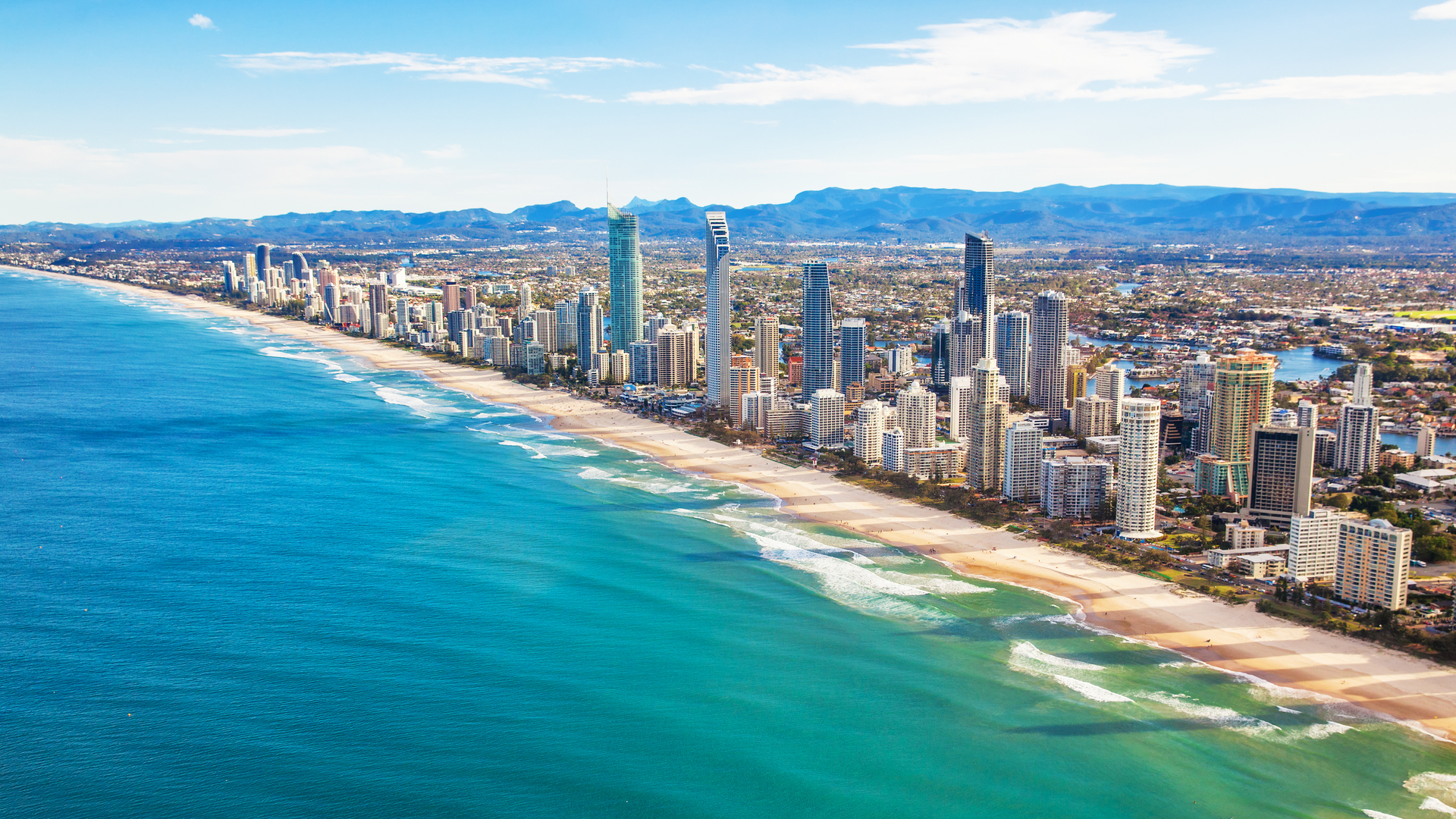The future of cashless payments is in Queensland
Australia has widely flipped to wave-and-pay, meaning tourists need never worry about cash


As sci-fi author William Gibson has said, the future is here, it's just not evenly distributed.
The pace of technological change is so quick that plenty of countries leap ahead in some areas and drag behind in others - making travelling especially intriguing for those of us with an eye on the future of tech. It's like time travel: Kenya had mobile banking a decade before the UK, Canada has allowed money to be "emailed" for as long as I can remember, and Japan and Korea have smartphones years ahead of our own. And Australia isn't only a day ahead in time zones, but years ahead when it comes to ditching physical cash for digital money.
While on a two-week trip to Queensland, I petted a kangaroo, swam with turtles, and was bitten by at least a million mosquitos, but at no point did I actually touch any cash. Everywhere we visited in the country took payment cards rather than cash, be it a coral atoll 100km from the mainland or a hipster street-food market in Brisbane. It's not only the Australian dollar I avoided (if it even is a dollar; I genuinely have no idea what the local currency is, but presume it has a kangaroo or koala bear on it somewhere). Alongside never visiting a bank machine, I also barely used my own PIN. NFC contactless payments were the default across Queensland, meaning I could wave and pay for everything from my flat white to my souvenir T-shirts. Research by local bank Westpac suggests that Australia is leading the world with contactless payments, with its customers making 90% of their in-person purchases via wave and pay.
It's a long time since Travellers Cheques were necessary for tourists on a jaunt abroad, but this is my first overseas holiday that hasn't left me with a pocketful of coins weighing me down on the way home. This visit into the cashless future was supported by my online-only bank's payment card (thanks, Monzo!), which doesn't charge a fee for foreign transactions, meaning there was no downside to waving my card around Brisbane, the Sunshine Coast and beyond.
As convenient as it is to never worry about coming up short without a nearby ATM, and handy though it may be to avoid being left with a pocketful of coins good for nothing but serving as shiny mementos, there are downsides to every dollar spent being counted digitally. I'm not generally a fan of society shifting entirely to digital numbers rather than physical pounds and pence, as the former is too easy to surveil and rather less charming to dole out to children for pocket money or birthday gifts.
Digitising anything that was once analogue creates data, and moving to wholesale to digital cash means all of our transactions are trackable. What could that mean for us? The Australian government has for the past few years demanded access to citizens' bank accounts to ensure their taxes are accurate. While we should all pay our fair share of taxes, that's an incredible level of intrusion to catch out one-off, under-the-table cash payments. In some ways, such over-the-top sniffing ensures cash has a future in Australia, even if it's just to pay a teenage babysitter or kick some cash to your unofficial dog walker without forcing them to reckon with the impact on their taxes.
If we're going to follow Australia's lead and make it possible to ditch cash, we need solutions for the clear downsides. Tight privacy and data protection rules that aren't only enforceable but actually enforced make digital cash less dangerous, meaning we can all take advantage of its convenience without worrying about how it will hurt us.
Sign up today and you will receive a free copy of our Future Focus 2025 report - the leading guidance on AI, cybersecurity and other IT challenges as per 700+ senior executives
Tech change is fast, but as innovation comes more quickly for some than others, that distribution gap gives us the opportunity to peek into the future and see not only the benefits but also the pain points and abuses that such changes cause, so we can avoid them ourselves. What's the point of time travel, after all, if we don't bring anything back we can learn from? It's a better souvenir than a stuffed kangaroo, at least.
Freelance journalist Nicole Kobie first started writing for ITPro in 2007, with bylines in New Scientist, Wired, PC Pro and many more.
Nicole the author of a book about the history of technology, The Long History of the Future.
-
 Hacker offering US engineering firm data online after alleged breach
Hacker offering US engineering firm data online after alleged breachNews Data relating to Tampa Electric Company, Duke Energy Florida, and American Electric Power was allegedly stolen
-
 Threat intel could be your secret weapon in cybersecurity sales
Threat intel could be your secret weapon in cybersecurity salesIndustry Insights Threat intelligence transforms cybersecurity sales from reactive product pitching to strategic advisory.
